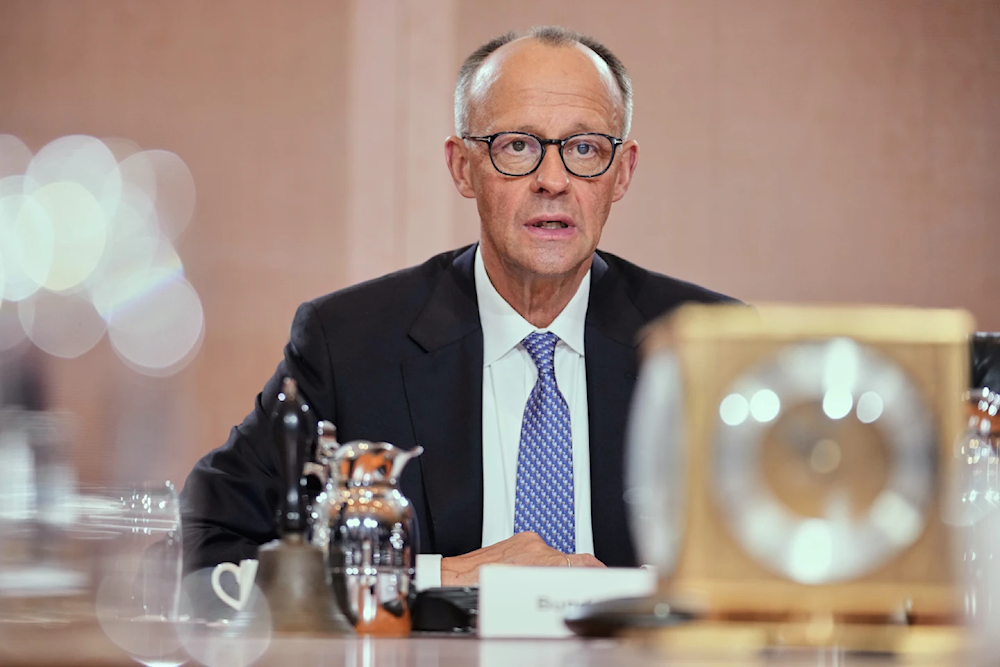Germany forms NATO brigade in Lithuania
Germany deploys a permanent brigade in Lithuania to bolster NATO's eastern flank, as Chancellor Merz marks a historic post-WWII military shift.
-

German Chancellor Friedrich Merz attends the first cabinet meeting at the chancellery in Berlin, Germany, May 6, 2025. (AP/Ebrahim Noroozi)
German Chancellor Friedrich Merz is visiting Lithuania on Thursday to mark the formal creation of Germany’s first permanent foreign military unit since World War II, a strategic move aimed at reinforcing NATO's eastern flank amid rising tensions with Russia.
Germany’s decision to establish a 5,000-strong armored brigade in Lithuania came after the commencement of the war between Russia and Ukraine in 2022 and was intended to deter any further aggression toward NATO member states Estonia, Latvia, and Lithuania, all of which were once part of the Soviet Union.
This development marks a historic shift for Germany’s Bundeswehr, which has traditionally been cautious in projecting force abroad due to its post-war pacifist stance.
While Germany has contributed troops to multinational missions in Afghanistan and Mali, the permanent stationing of forces on NATO territory represents an unprecedented expansion of Berlin’s military engagement.
Merz uses Lithuania visit to signal stronger defense posture
Chancellor Merz, who took office this month, will attend a ceremony in Vilnius marking the official formation of the 45th tank brigade, also referred to as the “Lithuania Brigade.”
According to Deputy Government Spokesperson Steffen Meyer, this moment serves as a “milestone on the path to the permanent stationing of a German brigade on NATO's eastern flank.”
Dear Volodymyr @zelenskyyua, we stand with #Ukraine in good and in testing times. We must never confuse aggressor and victim in this terrible war. (FM)
— Friedrich Merz (@_FriedrichMerz) February 28, 2025
The brigade will eventually consist of around 4,800 German troops and 200 civilian Bundeswehr staff, with full operational capability expected by 2027.
A forward detachment of about 400 personnel has already arrived, according to Germany’s Defense Ministry.
NATO allies push deterrence
Defense Minister Boris Pistorius, who will join Merz on the visit, emphasized last month that the deployment “sends a strong message of solidarity and readiness.” The German government considers Lithuania, which borders the Russian exclave Kaliningrad and Moscow’s ally Belarus, as “the most endangered state on NATO's eastern flank.”
Merz has pledged to build Europe’s strongest conventional army through increased defense spending, aligning with calls from Washington, including from US President Donald Trump, for European NATO members to bear more of the military burden.
Trump’s overtures toward Russian President Vladimir Putin and push for a quick peace deal in Ukraine have unsettled European allies, accelerating moves like Berlin’s Lithuania deployment.
During his visit, Merz is also expected to meet Lithuanian President Gitanas Nauseda, with the ongoing war in Ukraine expected to dominate discussions.

 3 Min Read
3 Min Read









